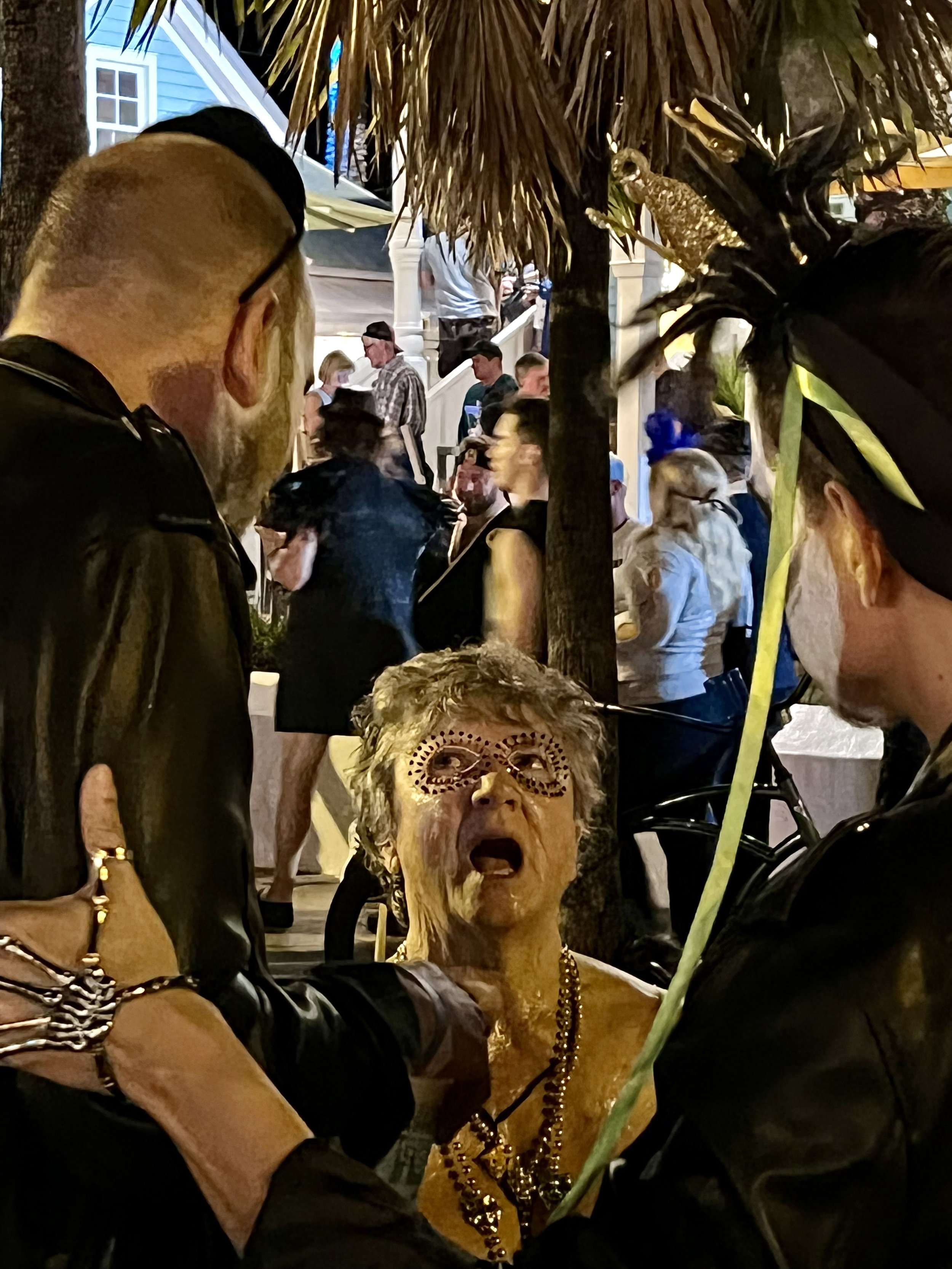Blog
Would You Trade Your Life For A Paycheck?
Fallen Officers Directory, National Law Enforcement Memorial, Washington, DC
As we gather together with family this holiday season, take a moment to remember the thousands of law enforcement officers that have given their lives to protect ours. Consider, the starting salary for a police officer in a Maryland county is $54K. Other jurisdictions are less. Would you make that trade? Consider how your actions may be contributing to this statistic. Consider how your actions could help eliminate this statistic. Give the gift of life.
Stand Down … And Stand Together …
World War II Memorial, Washington, DC
Our greatest strength as well as our greatest challenge is our diversity. It’s only when we work together to understand what our differences bring with them that we honor those that have given their lives for what we have. All great communication begins with mutual respect and follows with empathy and understanding of what we each have to say. Its not easy, but when has being a family ever been easy.
The Magic Of The Arts …
National Gallery Of Art, East Building, Washington, DC
As Walt and Roy Disney discovered, the magic of the arts is in the way it brings out the best in us. Sprinkle a little magic around your world today!
224
Photo Bruce Alan
This year 224 law enforcement officers lost their lives to protect ours. Consider how you contributed during the year in an effort to reduce this statistic. One of the best ways to save a cop’s life is to save a child from taking the wrong turn. You can make a difference. Make this year your year to be that difference.
What Do You Expect From A Leader?
Good leaders are sometimes hard to come by. In our frustration to find the best we often times settle for much less and replace our expectations with hopeful fantasy. Do you expect a leader to beat their chest and criticize others or do you expect a leader to be someone who motivates others to work side by side for the good of the whole? Do you look for someone who takes the quick route to the top and takes credit for the work of those who actually put in the hours, the sweat, and the creativity to help build a team’s success, or do you look for someone who started at the bottom and worked their way to the top based on their accomplishments and ability to work with the entire team to achieve the mission? Do you look for a leader who collects the rewards from everyone’s efforts for themselves or do you expect that everyone should benefit from the work they invested into the collective effort? Do you look for a leader that reflects badly on who you are as a member of the team or do you look for a leader who makes you feel proud to be represented by them?
As a member of the team what are your expectations of yourself? Are you willing to hold yourself to the same expectations you have in a leader? Are you willing to step up and work to support the whole team? Are you prepared to look yourself in the mirror with a critical eye each morning and tell yourself what you need to do better that day, and do it?
We are all one team. Sometimes finding a leader that is deserving of the title is difficult simply because we have allowed ourselves to lower our standards and settle for what we get. Great teams never settle. They set the bar high and continue to go after that goal until the mission is accomplished. And great teams never feel that their mission is truly accomplished because they know success is an ongoing target.
OK, Let’s Talk …
The other day I was wandering the halls of one of our many great art galleries when I came upon a commentary of a piece of art that identified the artist as a gay individual using the label “Queer Artist”. Now I am in my, uhm, …. 60’s (hard swallow) and in my day the word queer was used as a derogatory slur. I was astounded that the institution I was standing in, that was ordinarily supportive of all of our palette colors, would use such a term. I took a pic of the comment and sent it to my two 30’s kids with my editorial comment. I received no reply; not in support of my reaction, not as a mediator, and certainly not in support of a slur, as they would never do.
I was planning to contact the staff of the gallery when I decided to instead call one of the support hot lines for the LGBT community, just to make sure my definition of the word was still accurate and to have an organizational reference when I went to the gallery staff to get the wording on the exhibit changed.
The hotline worker was really cool and level headed. When I explained that I wanted to get his opinion on its interpretation he shared that to those in their 50 and over age group that was a derogatory use of the term, but the younger gay community was attempting to adopt the term as a positive label of inclusion. He also voiced his appreciation that someone would take the time to ask, particularly someone that wasn’t a member of that community.
So the lesson learned here was, what one finds offensive another may not and reacting with anger and indignance may be your first reaction, but that needs to be let go and communication needs to take its place. Every generation has terms that are derogotory and others that are supportive and expressive. And every generation seeks to make their own mark by changing that which previous generations have defined. But we all need to recognize that this constant change of what is acceptable and what is not means that its intent may or may not be meant to be harmful and both the speaker and the receiver need to respect the other, hear them out, and share their response, calmly and with mutual respect.
Had I not asked someone who stood to be impacted by it, and had that person not reacted as a level headed “Adult”, a misunderstanding would have continued. And had it been someone else more emotionally charged, this could have become an issue for many parties involved. But to deal with this the right way required talking, not being silent or repressive of our ability to talk with each other.
And we have all seen where that can lead, right?
Just Because You Can’t See It Doesn’t Mean It Isn’t Real
There was a time when we used to make fun of, belittle, ignore, and even brutalize those with physical handicaps. Since then, we have come to recognize, respect, and support those that have suffered and are overcoming what life has thrown at them. We recognize that at any moment we too could be asking for that same respect and support.
But what about those that are dealing with injuries that we can’t see. Mental health, like pulmonary, circulatory, skeletal, and muscular health, is a human system made of complicated chemical and physiological interactions that rely on a finely balanced architecture. A change to any of its components, be it genetically, environmentally, chemically, or physically induced, can severely alter a person’s psychological health. But unlike external physical injury, we only see its signs through a person’s personality.
You wouldn’t laugh at someone that lost a limb. You wouldn’t harm a person who has lost their vision. You wouldn’t punish someone who was hit by a car. A person’s mental health is not a choice any more than the size of your nose was.
Do you find yourself expecting others to just “act right”? Maybe its our expectation that needs to change. Maybe we need to find better ways to help provide our support.
Is Your Vision Being Obscured By Bad Design?
Too often our vision of what is around us is limited by outside forces, keeping us from seeing what is in our way or the threats coming at us. We are quick to condemn or retaliate against others when we are wronged, not realizing that they were impacted by limitations outside of their control just like us. We too often focus on the outer skin of the onion and neglect the underlying issues of bad design, either unintended or with a purpose. What are your design obstacles? What obstacles have you designed?
Which Team Are You Playing On?
Great teams don’t have to look alike, sound alike, or dress the same. What makes them great is that they are dedicated to working together towards the same goal; all coming out winners. To accomplish that they all have to want to see the whole team win and pull their weight to make that happen. They all have to work in sync, communicate well, and have respect, both for their team members and the role each plays. They all have to be trained to be the best teammate they can be. It also means having a winning coaching staff, well trained themselves at both the challenge ahead and how to bring out the talents of a winning team made up of equally accomplished team members. Without both they are just floundering at sea.
So which team are you playing for? We are all in the same boat.
So Are We Tired Yet?
Michael Lantz, Artist, US Federal Trade Commission, Washington, DC
Does it feel as if your life looks like this? This is the result of what happens when two forces can’t or won’t work together. It usually results from an inability to communicate, an unwillingness to acknowledge what the other wants, and an unwillingness to work together to find a solution that works for both parties. It’s what parents are left with when dealing with young children when they are at an age that can’t understand or respond to reasoned conversation. It’s what animal trainers once used before they discovered humane behavior modification techniques.
We aren’t wild animals and we have grown out of being self-involved children, right? So maybe its time to try the adult approach. Life doesn’t have to be this tough.
Let’s Talk … Anger.
Anger, like our other emotions, is primal, and we all come equipped with it. But it has a quirky characteristic to it. It’s what we call a secondary emotion, meaning, it’s brought about when another emotion gets triggered. We get angry when we, or someone we care about, gets scared, frustrated, threatened, or physically or emotionally hurt.
Have you ever noticed that when one of these other emotions gets triggered we aren’t quite so quick to pay attention to it? But when anger gets triggered we all notice. It creates a tremor in the force, as Obi-Wan used to say, and as our community is much happier when we all appear happy, it really doesn’t like when we get angry. In fact, we are so unsettled by anger that we will often completely ignore the person that swung the bat and punish the individual that got angry after being hit by the bat, metaphorically speaking that is. Why you might ask? Well anger is unpredictable, dangerous, difficult to control and regulate, and often gets targeted at the innocent. It keeps the community from doing business as usual; in other words, working on our survival and ability to thrive.
Anger, like your other emotions, can be controlled, but you have to be quick on the draw because it can come blasting out before you know it. And simply keeping it in isn’t the right answer. Eventually, it just builds up, and builds up, and becomes a greater risk or it starts showing up in other ways. Freud suggested that depression is anger turned inward. Maybe you or someone you know can relate to that idea.
Recognize when you feel yourself getting angry and take a breath and a step back from whatever is the source of the problem. Parents get a lot of practice at this. Identify what feeling is triggering the anger and focus on that (you may need some time to figure this out so don’t be afraid to ask for a time out). Verbalize how you are feeling and what it is that is making you feel that way. If possible work with the source of the problem, if not immediately, then when emotions are not so high. If you need to, talk with a neutral third party to get some coaching or support. If you can’t resolve the problem immediately, or you can’t get a satisfactory resolution, find a safe way to vent the anger you are feeling. Personally, my favorite is grabbing a good solid stick and giving a tree a good thrashing until I run out of emotion or become too tired to keep going. Trees really don’t mind; they are pretty tough skinned and happy to lend a hand.
Often we will find that the feeling that triggered the anger resulted from a misunderstanding, an emotional low in our day that made us more sensitive than we would normally have been, or something that impacted us that was completely unrelated to what we reacted to. And sometimes the reaction is justified. But whatever the reason, your response is your responsibility, and you need to keep it healthy and appropriate, because the last thing you want is to cause yourself any more emotional damage than you have already encountered. It just makes sense, right?
Do You Suffer From Unrealistic Expectations?
When facing disappointment or disapproval of someone else’s failure to meet your expectation you might want to ask yourself, is my expectation even realistic to begin with. Often we judge others by our own talents, skills, education level, or wealth and opportunities, not realizing that we may be expecting others to be equally blessed. We may have expectations that even we can’t meet. Just because you want it doesn’t mean its possible to provide it.
How Well Do You See The World?
We come from a world of generalizations, born mostly from our lack of knowledge and because generalizations fit easier into our conversations. The color of the sky is blue, the color of our ocean is emerald, we live on the blue planet in our solar system. But as we learn, and experience, and visit more of the world around us, we learn that our world is not made of generalizations, its made of complexities that are often hidden from our gaze. Our sky is made of air, which is made of gases and particles. Its apparent color is determined by the darkness of space, the colors that go unfiltered from the light traveling from our sun, the colors reflected off of particles rising from our planet’s surface, and the way our eye responds to the spectral wave hitting our optic nerves, creating a perceived color in our minds. A change to any one factor can change our perception at any moment.
Although our understanding of our world matures, our conversations fail to allow us the luxury of evolving to more detailed and accurate discussions. As our world moves faster and faster we are pressured into shorter conversations that rely on generalizations more and more. Too often we allow ourselves to fall back into the assumptions and interpretations that were held by earlier generations, less knowledgeable and more driven by misunderstandings or proposed ideas masquaraded as fact. We do this simply because our time pressures make it easier to do so, or we don’t wish to loose the benefits we have gained from our adoption of these ideas, or we are simply too tired to, once again, change our understanding of what is around us.
But we can’t afford to live and behave in a generalized and inaccurate world. Art’s early masters understood this. They didn’t deny the world around them, they strived to add the pigments they saw to their palettes so they could paint and preserve the real beauty of our world. To deal with the problems we face requires us to see the world as it really is and encourage others to see the intricate details and variations around us. Only then can we come together as one extremely varied race, the human race, to save what we claim God has made.
God Called Me Up The Other Day …
… asking for a legal referral. He wants to sue for copyright infringement.
Ask yourself, do I want to follow God, or do I really just want to be God. He doesn’t kill or destroy, he creates. He doesn’t tear down, he uplifts. He doesn’t backstab, or deceive, or conspire against. He is open, and honest, and inviting. He doesn’t exclude, he welcomes. And he doesn’t charge a commission.
So which path are you walking? Just a question.
How Well Do You Communicate?
Monroe County, Florida
The ability to communicate is a skill like any other. It must be learned, practiced, and continually tuned. Our level of success at communicating with one another is a reflection of how well EACH party involved has mastered this skill. Too often we blame others for their failures when in fact our expectation was never clearly communicated to begin with. Often we jump to conclusions rather than taking the time to ask and listen to each other. Many times we mistake yelling at each other, or manipulating, or winning an argument, for authentic communication. It’s not a game to be won. It’s a goal for all involved to reach. So ask yourself before beginning each of your conversations, is my goal truly to communicate to solve this problem…or do I have a different agenda.
How Many Layers Can You Find?
Solving a problem can be a complicated task that requires a full understanding of what its cause is. All too often we respond to what we see presented before us rather than taking the time and making the effort to find out what its root cause is. Like an onion, that may require digging down through all of the layers that life has added to the problem. Dealing with any of these layers, and not the root cause, will only frustrate your effort and drain your creative energy. So, the next time you get ready to provide your guidance, ask yourself, “have I really peeled away all of the layers?”
Success Is Not For The Timid …
The trail to success is paved with determination and perseverance. The breeze that will help push you along your way is made of ingenuity and creativity.
What Does Your Shadow Look Like?
Renwick Gallery Of The Smithsonian American Art Museum, Washington, DC
We each cast a shadow in the world we live in. Much of the time we tend to travel around unaware of what our shadow looks like or how large and far reaching it is. We may not realize just how frequently those that fall within our shadow are so heavily influenced by the characteristics we project with our words, our actions, and sometimes simply with our very image, Those that we influence begin to adopt those same characteristics in their lives. When this occurs we change from simply being an individual to being a leader.
Leadership is a grave responsibility that has long lasting, and far reaching impact on the lives of others. Consider how your image appears to those that fall within your shadow, how the characteristics you project present themselves, and if that image is really worthy of the word leadership.






















